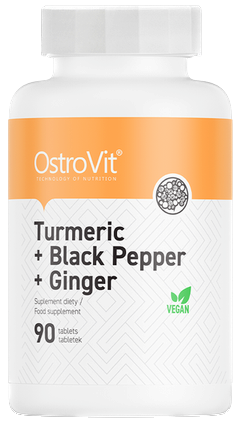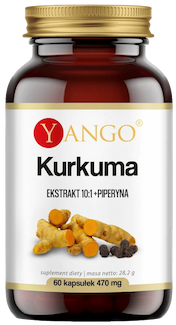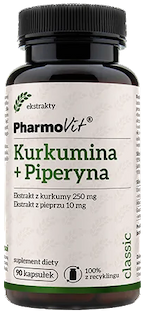Piperine - action, properties, side effects. When are the first effects?
Piperine is the main ingredient in pepper, which shows health-promoting effects on our body.


Learn more about our editorial process
.

Learn more about our editorial process
.

Learn more about our editorial process
.

Learn more about our editorial process
.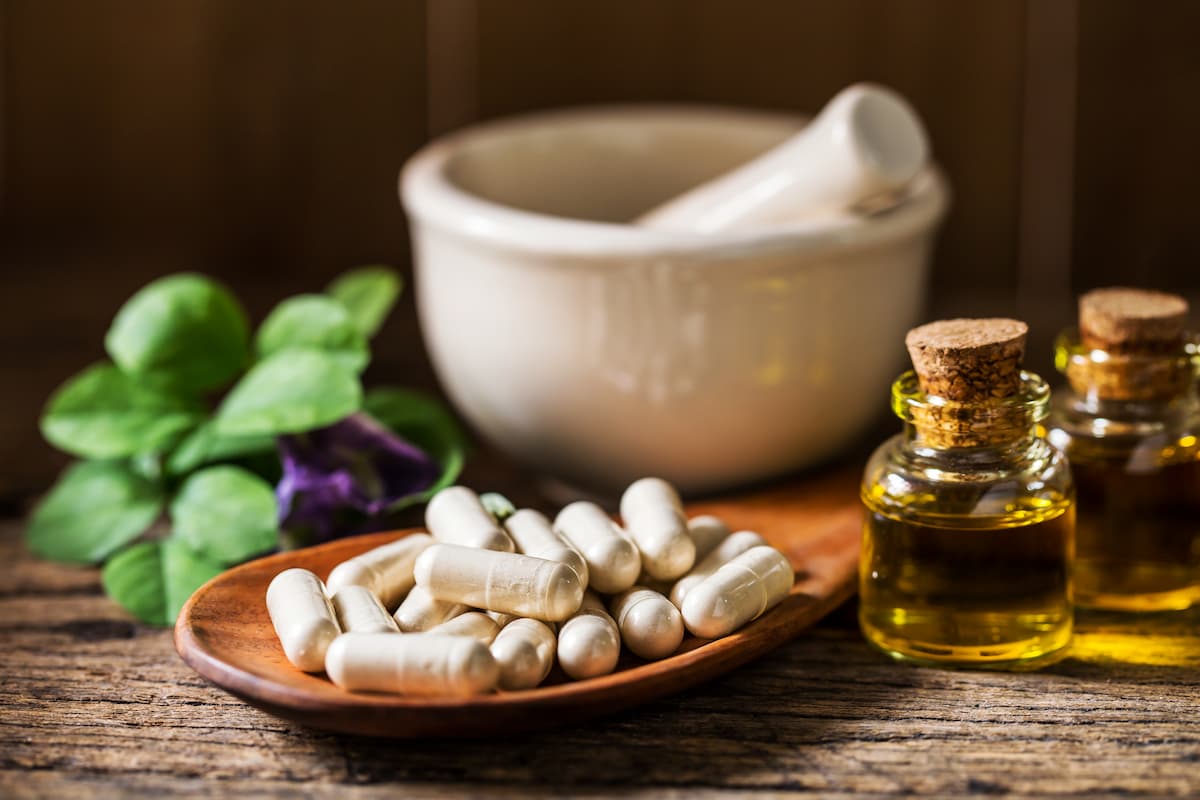
Why you can trust us
Articles on Natu.Care are written based on scientific research, data from government websites and other reliable sources. The texts are written in cooperation with doctors, nutritionists and other health and beauty experts. Articles are reviewed before publication and during significant updates.
.Learn more about our editorial process
.Information about advertisements
Content on Natu.Care may contain links to products from the sale of which we may receive a commission. When creating content, we adhere to high editorial standards and take care to be objective about the products discussed. The presence of affiliate links is not dictated by our partners, and we select the products we review ourselves completely independently.
.Learn more about our terms and Conditions
.The piperine contained in pepper is responsible for its health-promoting properties. It is due to its action that pepper is used in natural medicine.
After reading this article, you will never look at pepper in the same way. When seasoning a dish or taking a pinch of pepper in your fingers, you will experience its smell as a harbinger of health-promoting benefits. Check out the properties of piperine as described in scientific studies.
From this article you will learn:
- What is piperine .
- What its effects and properties are .
- How to dose piperine safely .
- What are the contraindications and side effects of piperine .
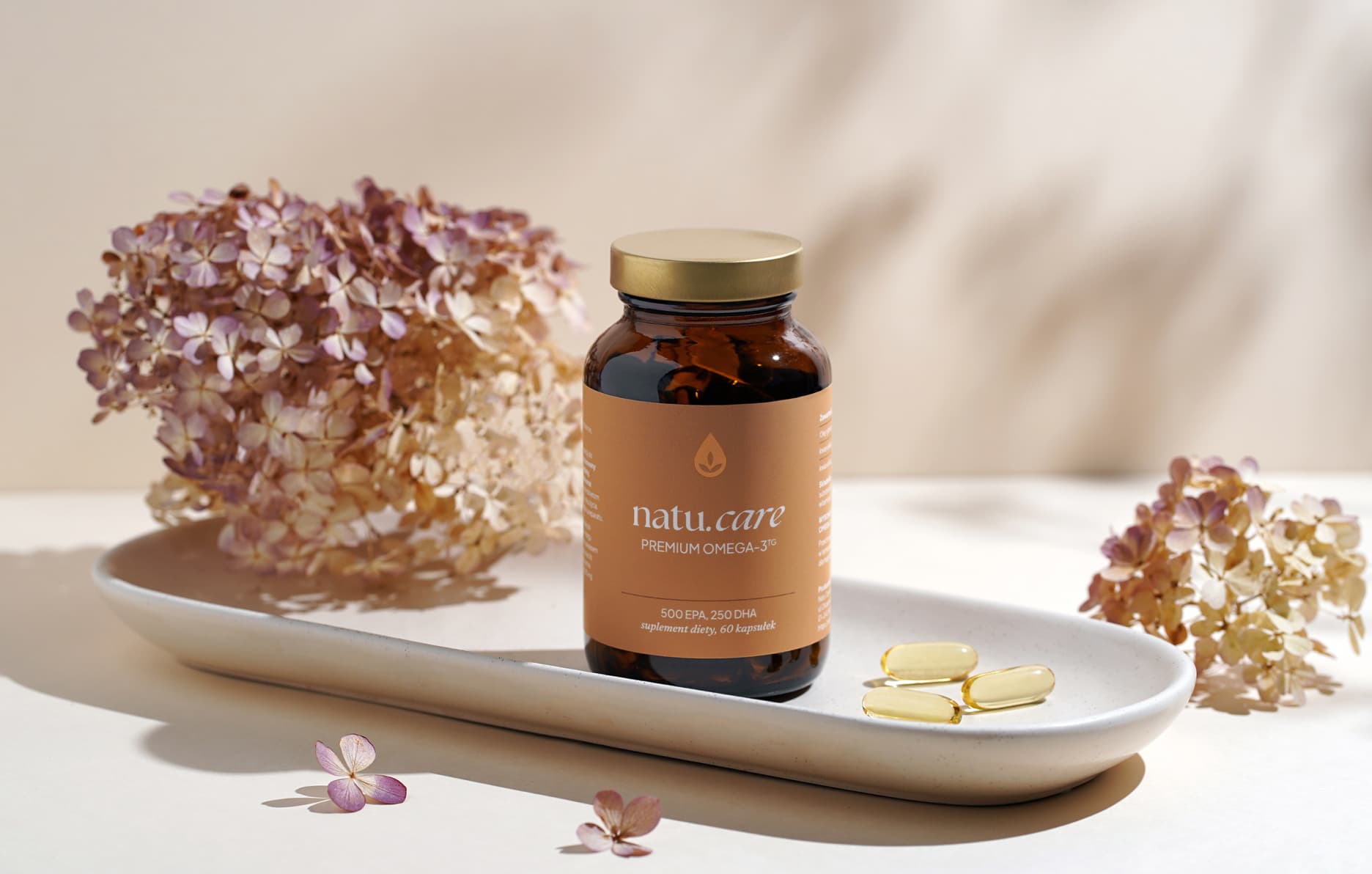
Sprawdź, za co pokochały go tysiące klientek Natu.Care Premium Omega-3ᵀᴳ -15% z kodem BLOG15
Natu.Care Omega-3ᵀᴳ Premium
Natu.Care Omega-3ᵀᴳ Premium dla zdrowia serca, mózgu i odporności. Najlepsza przyswajalność. Optymalna dawka 750 mg. Przebadana przez niezależne laboratorium.
Zobacz więcej
Produkt ma super skład, transparentną etykietę i co dla mnie jest ważne – małe kapsułki do połknięcia. Nie ma też nieprzyjemnego efektu odbijania rybą, który miałam spożywając inne produkty. Widzę znaczną poprawę odporności. Polecam!@Kasia P.
See also:
- Curcuma
- Curcuma in tablets
- Berberine
- Wild rose
- Adaptogens
- Creatine
- Ashwagandha
- Maccharide
- Caffeine
- Indian ginseng
- Black cumin oil
What is piperine?
.
Piperine is one of the main ingredients in pepper. It gives this spice a peppery taste and aroma. The greatest amount of piperine is found in black, white, green and coloured pepper, respectively. Piperine is an alkaloid, a naturally occurring chemical compound with multifaceted effects on the human bodyand.
Natural medicine has used piperine for thousands of years to treat and alleviate many ailments. Only recently have scientists been looking closely at its properties. Research is underway that may, in the future, result in the implementation of piperine as an additional ingredient to assist in the treatment of many conditionsand.
There is relatively little piperine in pepper. It is only pepper extracts that contain the amounts needed to have an effective effect on our body. Piperine is obtained as an extract from black pepper or, less commonly, by chemical synthesis . We will not realise the full potential of piperine by consuming pepper alone.
Piperine - effects and properties
.
The most important properties of piperine are: increasing the bioavailability of nutrients and drugs (by up to 30%-200%), supporting weight loss, anti-inflammatory, anti-microbial and antioxidant effects, and supporting the nervous, cardiovascular and digestive systemsand.
Piperine has long been under the magnifying glass of scientists, with a growing body of research findings confirming its unique properties for healthand.
What does the scientific research to date suggest about the effects of piperine on different areas of our health?
.
Piperine for weight loss
.
Piperine may support weight loss by: inhibiting appetite, regulating carbohydrate and fat metabolism and increasing thermogenesisand.
Remember that the cornerstone of weight reduction is a calorie deficit . For best results, include your favourite activity and nutritious diet. Treat piperine supplementation as a support, not the main remedy for overweight.
Check out articles on chromium and berberine, both of which have been attributed with weight-loss properties.
Powerful antioxidant
.
Today we are exposed to large amounts of free radicals - unstable molecules that can damage body cellsand. This is promoted by stress, fatigue, diet, as well as exposure to pollution, cigarette smoke and sunlight .
Research suggests that piperine is a potent antioxidant that may help prevent or delay the damaging effects of free radicals by eliminating them. A diet rich in antioxidants has been linked to reduced risk of certain diseases (e.g. cancer) and delayed ageingand. It also reduces harmful oxidative stress.
Anti-inflammatory potential
.
Chronic inflammation can contribute to the development of diseases such as rheumatoid arthritis, heart disease and cancerand. Piperine is currently being studied to prevent or inhibit the development of inflammation in the body. Animal studies look promising - perhaps in a few years' time piperine will support the treatment of many inflammatory diseases .
Increases bioavailability of nutrients and drugs
.
Piperine can increase the bioavailability of certain nutrients and drugs by up to 30%-200% . The mechanisms of this effect depend on, among other things, the substance in question and the state of the gut.
Piperine can increase absorption :
- minerals (e.g. calcium, selenium, iron),
- vitamins (e.g. B vitamins and vitamins A, D, E, K),
- some compounds contained in plants (e.g. polyphenols in green tea, curcumin from curcumin),
- drugs (e.g. rifampicin, nevirapine, isoniazid, pyrazinamide, ethambutol) .
Cancer
.
In vitro studies suggest that piperine slows replication (growth) of breast, prostate and colon cancer cells and induces cancer cell deathand. Human studies are needed to learn more and understand the exact mechanism of action of piperine. At this point, we are keeping our fingers crossed for the researchersand.
Nerve system
.
In animal studies, piperine has shown potential benefits for symptoms associated with degenerative brain diseases such as Alzheimer's and Parkinson's disease .
The compound improved memory and reduced the formation of amyloid plaques, which are clusters of harmful protein fragments in the brain linked to Alzheimer's disease .
Digestive system
.
Piperine cares for our digestive system in several ways: it can increase the amount of good bacteria in the gut, improves digestion by increasing the secretion of gastric juices and stimulating the secretion of pancreatic enzymes .
Lipid profile
.
Animal studies have shown that piperine lowers total cholesterol and 'bad' cholesterol (LDL), and increases 'good' cholesterol (HDL)and. These are very promising results, and in the future piperine may be an effective support for the treatment of obesity and cardiovascular disease.
Blood glucose metabolism
.
Piperine may improve insulin sensitivity and reduce blood sugar spikes. Proper sugar metabolism prevents sudden hunger attacks and the development of metabolic diseases (e.g. osteoporosis, type II diabetes)and.
Libido
.
Today we are exposed to stress, which can have an adverse effect on lowering libido. As far back as traditional Indian and Chinese medicine, piperine has been used as an aphrodisiac and remedy for sexual dysfunction. Modern research suggests its positive effects on erection in menand.
Antimicrobial activity
.
Piperine has been shown to have antibacterial propertiesand. Studies suggest that black pepper extract fights bacteria such as Staphylococcus aureus, Escherichia coli and Chromobacterium violaceum .
Support for the treatment of depression
.
Animal studies to date suggest that piperine may have an antidepressant effect . Researchers are looking at combining different natural active ingredients (e.g. piperine with resveratrol). The synergistic effect obtained from these combinations may provide clues for the design of innovative antidepressants with high efficacy and rare side effects .
Summary
.On the internet you will find many articles assuring you of the amazing properties of piperine. Keep in mind that most of these are animal studies. Piperine supplementation will certainly benefit you, but let it be an addition, a supplement to a nutritious diet and exercise, which are the cornerstones of health.
Piperine - when do the first effects occur?
.
You may notice the first effects of piperine after approximately4-8 weeks of daily supplementation with 5-10 mgand. Depending on your expectations, you may want to record the date you started supplementation and your initial condition (e.g. lipid profile test results, waist circumference) and check these parameters after 4 weeks. Remember that piperine does not work on an ad hoc basisand.
Have a tendency to forget to take pills?
.
- Purchase piperine, which is consumed once a day. .
- Set up a cyclical supplementation reminder on your smartphone.
- Set up a daily supplementation reminder.
- Set up a daily ritual, such as a piperine tablet for the second breakfast or after dinner. .
- If you have a product that requires several servings a day, buy a graduated pill container. .
- When buying a supplement, calculate how long you will need 1 packet for. Consider making a stockpile so you don't stop supplementation. .
Regular consumption of piperine, combined with a varied diet and physical activity, can bring many benefits. Feel like a scientist and see after 4 weeks if something you've been waiting for has changed (e.g. smaller waist circumference, better blood test results).
Recommended piperine intake
.
Piperine is considered safe when supplemented at 5 to 10 mg per day and. Manufacturers in Poland offer several forms of piperine administration and different contents per serving, so always follow the directions on the leaflet.
The amount of piperine depends on the species of pepper, e.g. black pepper contains approximately 2-7.4%and. Wanting to exploit the potential of this spice, fortunately we don't have to add pepper to literally everything (which can end up irritating the stomach!) .
A resolution of the Dietary Supplements Panel of the Sanitary and Epidemiological Council dated 04/02/2022 indicated a maximum daily allowance of piperine for adults of 2 mg .
There is a lack of research into the long-term use of piperine in larger quantities - use common sense and bet, regular supplementation with products from proven manufacturers, rather than shock doses that don't work and can only cause multiple disorders.
 .
.
Witold Tomaszewskidoctor of medical sciences
Contraindications to the use of piperine
.
Piperine contraindications include: hypersensitivity to black pepper, pregnancy, breastfeeding, blood clotting disorders, use of high blood pressure medication, antidepressants, antidiabetics. Piperine should not be consumed by children or people expecting surgeryand.
Piperine side effects
.
In some people, piperine may cause side effects such as gastrointestinal complaints (zgaga, nausea), coughingand. Piperine is generally considered safe for supplementation, with side effects common with excessive supplementationand.
These side effects usually affect people who use excessive amounts of piperine. The unpleasant symptoms of piperine excess should subside on their own, and to avoid them in the future, moderation is important..
 .
.
Witold Tomaszewskidoctor of medical sciences
.Interactions
.
Piperine may interfere with the absorption of some drugs (digoxin, theophylline) or potentiate their effects (diclofenac, carbamazepine, chlorzoxazone) .
If you are unsure if you or a loved one is taking these substances, and you want to start piperine supplementation - consult your doctor for safety.
Piperine - which is the best?
.
When looking for the best piperine supplement, we should look at:
- Concentration of piperine -preferably above 95%.
- Concentration of piperine.
- Active ingredients that support the action of piperine (e.g. ginger, turmeric).
- Active ingredients that support the action of piperine (e.g. ginger, turmeric).
- Form of administration, which should be convenient for us (capsules, tablets, syrup).
Also, when buying piperine, pay attention to other medicines and supplements you are taking. If in doubt, ask your doctor or pharmacist.
.
Product description
Preparation with standardised extracts with herbal ingredients thatóre positively influencing the functioning of the body. Curcumin improves digestion, has an antioxidant effect and supports jointós health. Ginger helps to reduce inflammationólation, has an anti-bioactive effect and is rich in antioxidants. Piperine increases the bioavailability of someós food substances, has anti-inflammatory effects and increases thermogenesis in the body.
Pros and cons
Preparation with standardised extracts with herbal ingredients thatóre positively influencing the functioning of the body. Curcumin improves digestion, has an antioxidant effect and supports jointós health. Ginger helps to reduce inflammationólation, has an anti-bioactive effect and is rich in antioxidants. Piperine increases the bioavailability of someós food substances, has anti-inflammatory effects and increases thermogenesis in the body.
Additional information
Preparation with standardised extracts with herbal ingredients thatóre positively influencing the functioning of the body. Curcumin improves digestion, has an antioxidant effect and supports jointós health. Ginger helps to reduce inflammationólation, has an anti-bioactive effect and is rich in antioxidants. Piperine increases the bioavailability of someós food substances, has anti-inflammatory effects and increases thermogenesis in the body.
YANGO Curcumin
Product description
Turmeric extract combined with black pepper extract, containing piperine, which increases the bioavailability of active ingredients.
Turmeric may naturally support the proper functioning of the liver. Additionally, it may help maintain a healthy cardiovascular system and appropriate cholesterol levels in the blood.
Black pepper supports healthy digestion.
Pros and cons
Pros:
- Easy-to-swallow capsules.
- Standardization of turmeric root extract indicates high-quality raw material.
- Piperine enhances the absorption of turmeric.
- Product suitable for vegans.
Cons:
- None
Additional information
Do not use in cases of bile duct obstruction – curcumin increases bile production.
Does not contain shellfish, eggs, fish, nuts, soy, dairy ingredients, celery, mustard, sesame.
Pharmovit Curcumin + Piperine
Product description
Curcumin + Piperine Pharmovit is a dietary supplement that supports liver health, fatódigestion, joints and the immune system. Long Oyster Extract provides up to 237.50 mg of curcumin, while Black Pepper Fruit Extract contains 9.50 mg of piperine.
The supplement has no fillers or colourings
.Pros and cons
Curcumin + Piperine Pharmovit is a dietary supplement that supports liver health, fatódigestion, joints and the immune system. Long Oyster Extract provides up to 237.50 mg of curcumin, while Black Pepper Fruit Extract contains 9.50 mg of piperine.
The supplement has no fillers or colourings
.Additional information
Curcumin + Piperine Pharmovit is a dietary supplement that supports liver health, fatódigestion, joints and the immune system. Long Oyster Extract provides up to 237.50 mg of curcumin, while Black Pepper Fruit Extract contains 9.50 mg of piperine.
The supplement has no fillers or colourings
.Curcumin + Piperine Pharmovit is a dietary supplement that supports liver health, fatódigestion, joints and the immune system. Long Oyster Extract provides up to 237.50 mg of curcumin, while Black Pepper Fruit Extract contains 9.50 mg of piperine.
The supplement has no fillers or colourings
.Health Labs Care SlimMe
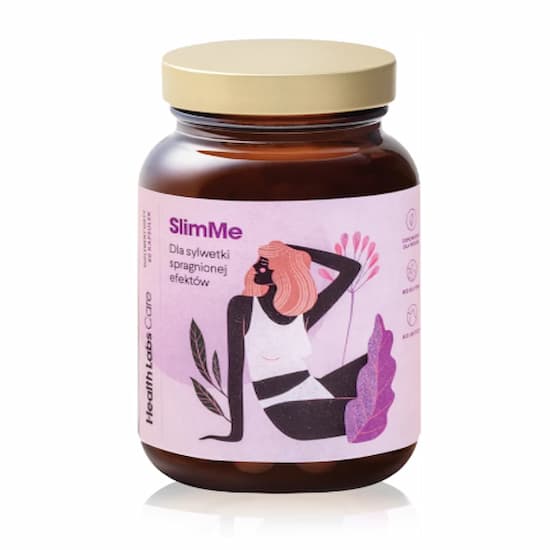
- Type: food supplement
- Daily dose: two capsules daily (morning and midday)
- Effect: The set of standardised extracts has a primarily thermogenic effect, i.e. it increases the rate of metabolic processes by increasing body temperature. This can mean that, even at a standstill, you burn a little more calories.
- Chromium, on the other hand, supports normal metabolism and helps maintain optimal blood glucose levels. Black peppercorns cleanse and support the liver, and Indian nettle root regulates fat storage.
Product description
Standardised plant extracts to support weight loss. Gluten-free. Lactose-free.
Piperine - expert opinions
.
Is piperine supplementation worth trying? Read what your doctor and nutritionist think about it.
Piperine used sensibly and based on the recommendations of a doctor, can be a good support for the treatment of many ailments. In the future, piperine may prove to be a valuable addition to many therapies, which will interestingly show how conventional medicine can be effectively combined with what nature offers..
 .
.
Witold Tomaszewskidoctor of medical sciences
.Piperine supplements have many research-proven properties. Particularly noteworthy is piperine's increased bioavailability of elements and vitamins. This is important because piperine thus helps to better nourish the body and support it in times of greater need..
 .
.
Julia SkrajdaDietitian
.See also articles on health:
.
- Thyroid testing
- Blood tests
- Cervical cancer
- Liver
- Fatty (oily) liver
- Hepatic tests .
- How to look after your mental health
Summary
.
The use of natural spices to treat various ailments is a practice that has been used successfully for thousands of years. Nowadays, thanks to the work of scientists, we can more and more accurately select a spice and its active ingredients for our ailments.
Piperine in a nutshell... knowledge:
- Piperine is the active ingredient found in pepper. .
- In studies, it has been shown to have anti-inflammatory and antioxidant effects.
- Piperine is an active ingredient found in pepper.
- It can help with weight loss, and achieves best results when combined with a reduction diet and exercise. .
- Has anti-cancer and antidepressant potential, but further research is needed. .
- Has a strong effect on the absorption of some drugs, supplements and nutrients. .
- Pregnant and lactating women and children should not supplement with piperine. If you are undergoing chronic medical treatment, also consult piperine consumption with your healthcare provider.
FAQ
.Whether piperine is safe for health concerns
.Yes, piperine is considered safe for health. However, it is important to note that despite its natural origin, there are contraindications to its supplementation. Interactions and effects on the absorption of other substances should be considered, as well as not exceeding the manufacturer's recommended doses.
Does piperine lose weight?
.No, piperine by itself does not cause fat loss. Instead, it is a good complement to a reducing diet and physical activity, due to its potential to accelerate metabolism and thermogenesis. It has the best effects when combined with curcumin.
Can you drink pepper with water on an empty stomach?
.Yes, you can drink pepper with water on an empty stomach. Caution should be exercised by those with sensitive stomachs and those suffering from gastric and duodenal ulcers - in these two cases it is strongly discouraged.
What are the benefits of drinking pepper water?
.Drinking pepper water increases the secretion of gastric acids, stimulates the secretion of pancreatic enzymes and this improves digestive processes. In addition, it has an anti-inflammatory and antibacterial effect.
Does piperine raise blood pressure?
.No, piperine does not raise blood pressure. Piperine lowers and regulates blood pressure in cases of hypertension. If you are unsure whether you can take piperine and you have high blood pressure and are taking medication, please consult your doctor.
What is the most piperine in?
.Naturally, most piperine is found in the fruits of black, white, green and coloured pepper. Large amounts of piperine can also be found in piperine supplements or in the combination of curcumin with piperine.
.
Sources
.See all
.Bang, J. S., Oh, D. H., Choi, H. M., Sur, B.-J., Lim, S.-J., Kim, J. Y., Yang, H.-I., Yoo, M. C., Hahm, D.-H., & Kim, K. S. (2009). Anti-inflammatory and antiarthritic effects of piperine in human interleukin 1β-stimulated fibroblast-like synoviocytes and in rat arthritis models. Arthritis Research & Therapy, 11(2), R49. https://doi.org/10.1186/ar2662
Butt, M. S., Pasha, I., Sultan, M. T., Randhawa, M. A., Saeed, F., & Ahmed, W. (2013). Black Pepper and Health Claims: A Comprehensive Treatise. Critical Reviews in Food Science and Nutrition, 53(9), 875-886. https://doi.org/10.1080/10408398.2011.571799
Chronic diseases, inflammation, and spices: How are they linked? | Journal of Translational Medicine | Full Text. (n.d.). Retrieved 15 March 2023, from https://translational-medicine.biomedcentral.com/articles/10.1186/s12967-018-1381-2
Haq, I.-U., Imran, M., Nadeem, M., Tufail, T., Gondal, T. A., & Mubarak, M. S. (2021). Piperine: A review of its biological effects. Phytotherapy Research, 35(2), 680-700. https://doi.org/10.1002/ptr.6855
Maeda, A., Shirao, T., Shirasaya, D., Yoshioka, Y., Yamashita, Y., Akagawa, M., & Ashida, H. (2018). Piperine Promotes Glucose Uptake through ROS-Dependent Activation of the CAMKK/AMPK Signaling Pathway in Skeletal Muscle. Molecular Nutrition & Food Research, 62(11), 1800086. https://doi.org/10.1002/mnfr.201800086
Parim, B., Harishankar, N., Balaji, M., Pothana, S., & Sajjalaguddam, R. R. (2015). Effects of Piper nigrum extracts: Restorative perspectives of high-fat diet-induced changes on lipid profile, body composition, and hormones in Sprague-Dawley rats. Pharmaceutical Biology, 53(9), 1318-1328. https://doi.org/10.3109/13880209.2014.980585
Rondanelli, M., Opizzi, A., Perna, S., Faliva, M., Solerte, S. B., Fioravanti, M., Klersy, C., Edda, C., Maddalena, P., Luciano, S., Paola, C., Emanuela, C., Claudia, S., & Donini, L. M. (2013). Improvement in insulin resistance and favourable changes in plasma inflammatory adipokines after weight loss associated with two months' consumption of a combination of bioactive food ingredients in overweight subjects. Endocrine, 44(2), 391-401. https://doi.org/10.1007/s12020-012-9863-0
Srinivasan, K. (2007). Black Pepper and its Pungent Principle-Piperine: A Review of Diverse Physiological Effects. Critical Reviews in Food Science and Nutrition, 47(8), 735-748. https://doi.org/10.1080/10408390601062054
Kesarwani, K., & Gupta, R. (2013). Bioavailability enhancers of herbal origin: An overview. Asian Pacific Journal of Tropical Biomedicine, 3(4), 253-266. https://doi.org/10.1016/S2221-1691(13)60060-X
.Stone, W. L., Basit, H., & Burns, B. (2022). Pathology, Inflammation. In StatPearls. StatPearls Publishing. http://www.ncbi.nlm.nih.gov/books/NBK534820/
The effects of black pepper on the intestinal absorption and hepatic metabolism of drugs: Expert Opinion on Drug Metabolism & Toxicology: Vol 7, No 6. (n.d.). Retrieved 15 March 2023, from https://www.tandfonline.com/doi/full/10.1517/17425255.2011.570332
Vázquez-Martínez, J., Buitemea-Cantúa, G. V., Gutierrez-Villagomez, J. M., García-González, J. P., Ramírez-Chávez, E., & Molina-Torres, J. (2020). Bioautography and GC-MS-based identification of piperine and trichostachine as the active quorum quenching compounds in black pepper. Heliyon, 6(1). https://doi.org/10.1016/j.heliyon.2019.e03137
Wattanathorn, J., Chonpathompikunlert, P., Muchimapura, S., Priprem, A., & Tankamnerdthai, O. (2008). Piperine, the potential functional food for mood and cognitive disorders. Food and Chemical Toxicology, 46(9), 3106-3110. https://doi.org/10.1016/j.fct.2008.06.014
Xu, Y., Zhang, C., Wu, F., Xu, X., Wang, G., Lin, M., Yu, Y., An, Y., & Pan, J. (2016). Piperine potentiates the effects of trans-resveratrol on stress-induced depressive-like behavior: Involvement of monoaminergic system and cAMP-dependent pathway. Metabolic Brain Disease, 31(4), 837-848. https://doi.org/10.1007/s11011-016-9809-y
Zanzer, Y. C., Plaza, M., Dougkas, A., Turner, C., & Östman, E. (2018). Black pepper-based beverage induced appetite-suppressing effects without altering postprandial glycaemia, gut and thyroid hormones or gastrointestinal well-being: A randomized crossover study in healthy subjects. Food & Function, 9(5), 2774-2786. https://doi.org/10.1039/C7FO01715D
Dietary Supplements Team-Global Sanitary Inspectorate-Gov.pl Portal. (n.d.). Chief Sanitary Inspectorate. Retrieved 15 March 2023, from https://www.gov.pl/web/gis/zespol-do-spraw-suplementow-diety
Zou, L., Hu, Y.-Y., & Chen, W.-X. (2015). Antibacterial mechanism and activities of black pepper chloroform extract. Journal of Food Science and Technology, 52(12), 8196-8203. https://doi.org/10.1007/s13197-015-1914-0
.
Editorials
Meet the team


Editor
Graduate of Journalism and Artes Liberales at the University of Warsaw. Since 2017, he has been working with the biggest portals in Poland and abroad as an editor. Previously worked for 3 years in one of the leading pharmaceutical companies - he knows the health and beauty industry inside out. In his free time, he most enjoys playing tennis or skiing.
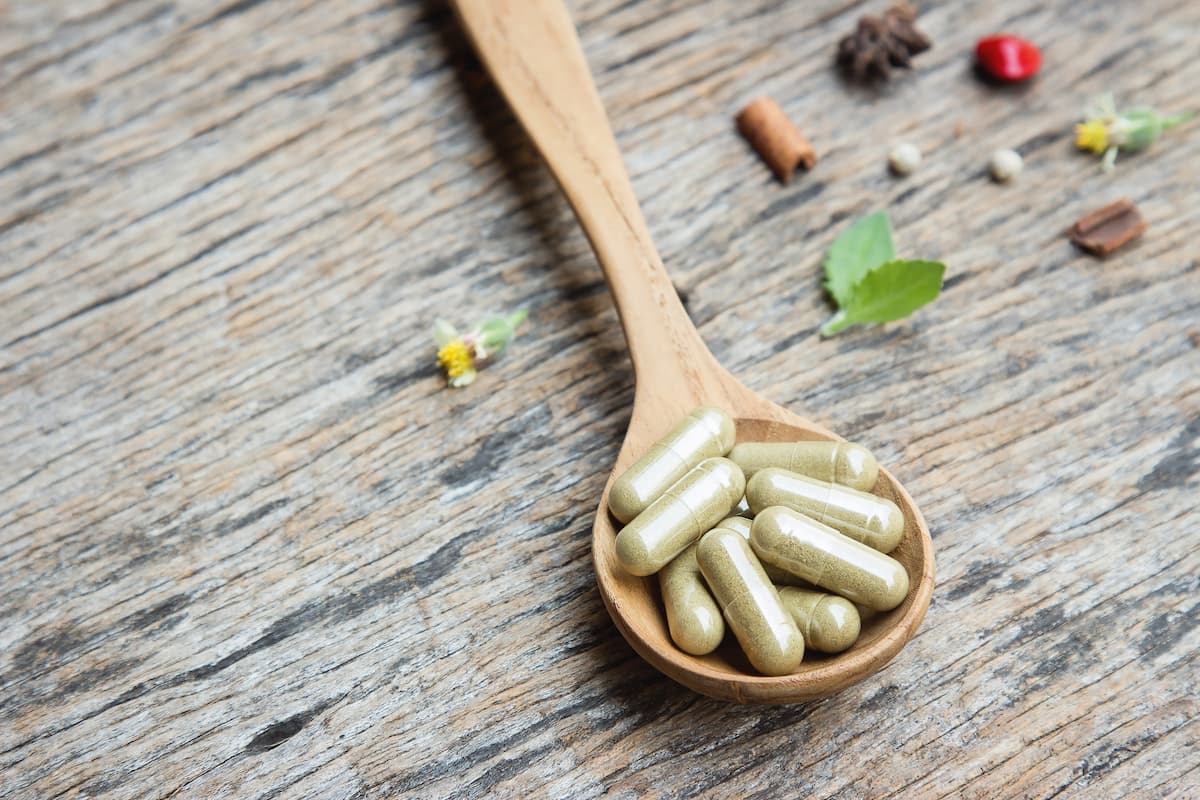
Ashwagandha affects thyroid hormone levels. Find out if you can use it.
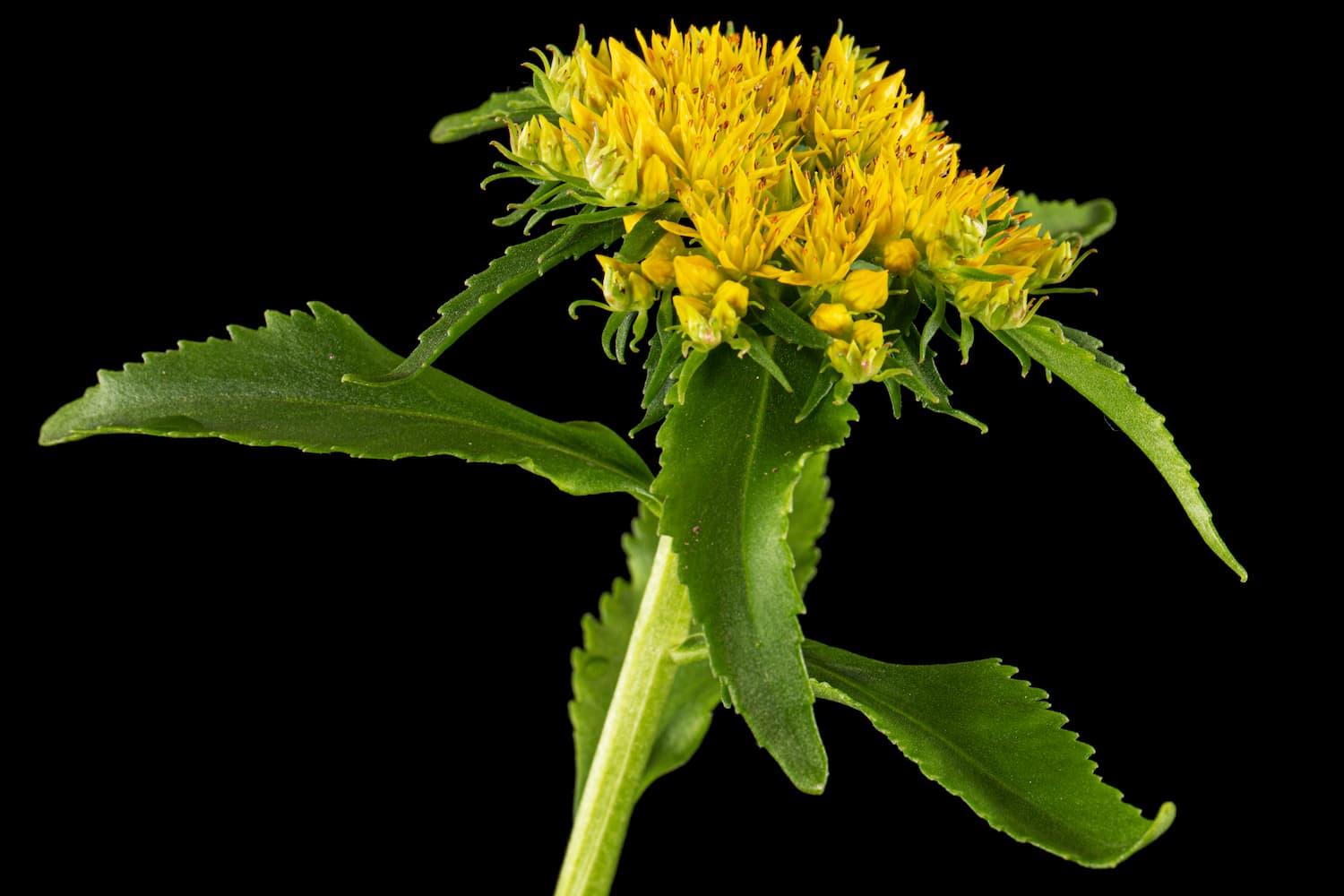
See how mountain pintail can affect your wellbeing.

Check out the opinions of doctors and other professionals about ashwagandha. Also find out what people on the forum think about it.
